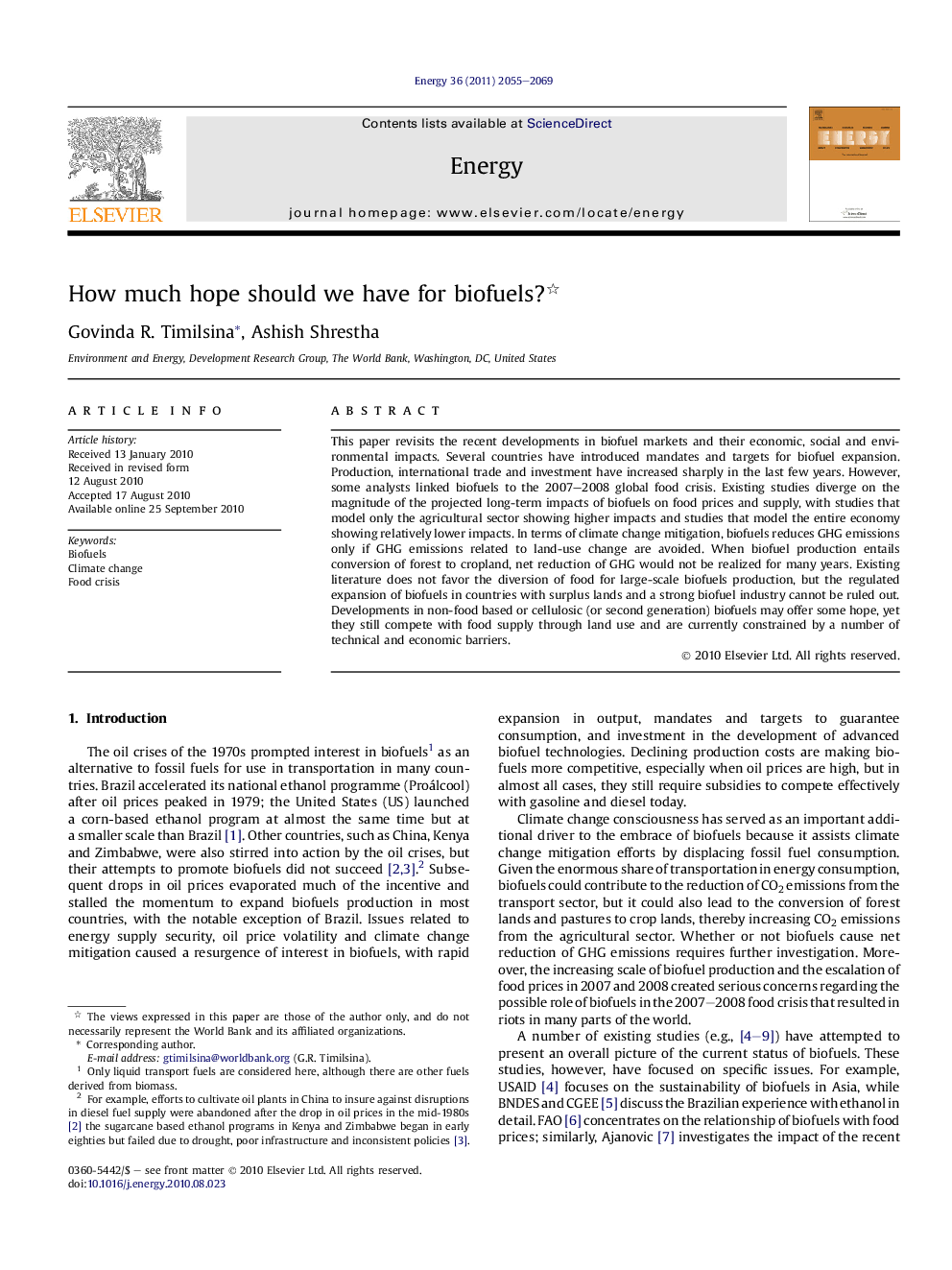| Article ID | Journal | Published Year | Pages | File Type |
|---|---|---|---|---|
| 1734888 | Energy | 2011 | 15 Pages |
This paper revisits the recent developments in biofuel markets and their economic, social and environmental impacts. Several countries have introduced mandates and targets for biofuel expansion. Production, international trade and investment have increased sharply in the last few years. However, some analysts linked biofuels to the 2007–2008 global food crisis. Existing studies diverge on the magnitude of the projected long-term impacts of biofuels on food prices and supply, with studies that model only the agricultural sector showing higher impacts and studies that model the entire economy showing relatively lower impacts. In terms of climate change mitigation, biofuels reduces GHG emissions only if GHG emissions related to land-use change are avoided. When biofuel production entails conversion of forest to cropland, net reduction of GHG would not be realized for many years. Existing literature does not favor the diversion of food for large-scale biofuels production, but the regulated expansion of biofuels in countries with surplus lands and a strong biofuel industry cannot be ruled out. Developments in non-food based or cellulosic (or second generation) biofuels may offer some hope, yet they still compete with food supply through land use and are currently constrained by a number of technical and economic barriers.
